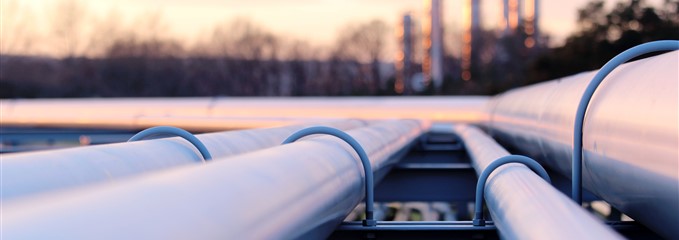


Is a Zantingh burner suitable for oil / diesel firing?
12-01-2022Firing on oil
These are uncertain times. Gas prices go through the (glass) roof. Energy suppliers come up with disturbing reports. Many horticulture entrepreneurs are looking for certainty to keep their crops warm this winter. Where gas suppliers currently do not offer that certainty, they are looking for alternatives and that is completely understandable.
In recent weeks Zantingh has been getting a lot of questions from customers about the possibility of switching to the diesel / oil firing. Unfortunately, there are quite a few snags.
Many Zantingh burners are equipped with a provision to burn a secondary fuel in case of emergency, that is if the supply of the primary fuel is interrupted for a short period of time. In most cases “secondary fuel” means diesel / oil. To make this provision for oil firing suitable for a longer period of time, it would require adjustments to the installation. Also, most installations have not fired or been tested on oil for years. Switching to this fuel is not without problems and possibly even dangerous.
Below are the answers to the most common questions (FAQ):
Can I use my burner to burn diesel / oil?
Yes, this is possible if the provision for a secondary fuel is available. This is possible with a maximum of 2 x 24 hours. In most cases, however, the installation can only work at 80% of its normal full load capacity.
What adjustments need to be made to the installation for oil firing?
The boiler temperature set point should not be set lower than 70°C.
The installation cannot be controlled through a climate computer.
Why can I only use the diesel / oil firing provision for 24 hours?
The burner is developed for optimal combustion on gas firing. When firing on diesel oil, there is a chance that the burnerhead or boiler / fire tubes will get polluted with soot. This should be checked regularly and removed when necessary (at least 1x per 24 hours).
Can I use the burner for a longer period of time while diesel / oil firing?
The answer to this question depends on the (local) emission requirements. In Europe firing on diesel/oil generally cannot meet the emission requirements.
Can I start the burner on diesel / oil myself?
To be able to start the burner on oil firing, a yearly combustion test has to be done during maintenance. If this is not the case, starting the burner on oil firing yourself is highly unwise. Often the oil pipes and nozzles are clogged, there is no oil in the pump and the system must first be vented.
Is capacity of my installation the same if I'm going to burn diesel / oil?
No, when oil firing the burner capacity will be about 80% compared to its maximum capacity when gas firing.
Can I continue to use my condenser when diesel / oil firing?
No, when oil firing, the condenser can no longer be used. The flue gasses have to be guided to the chimney via a bypass. This results in a 6-10% loss of efficiency.
I still have a tank with diesel. Can it still be used?
Often the diesel is stagnant for years. At the bottom of the tank sediment (sludge / diesel sludge) is formed and on top of the diesel is often a floating layer of condensation water. Pumping up the sediment or condensation water can lead to blockages in the pipes and the oil pump, but it also has a negative impact on the combustion.
How many liters of diesel / oil does my burner consume?
As a rule of thumb, you can maintain that 1 m3 (cubic meter) of gas equals 1 liter of oil. Example: if you now use 75 m3/h of gas, that will approximately correspond to 75 liters of diesel per hour. Note: in most cases your full load power is only 80% compared to gas firing.
Do I pay less if I'm going to fire on diesel / oil?
That depends on the current gas price. For long-term heating on diesel, you must also take into account the costs for adjusting the burner, commissioning the burner, having the oil tank cleaned and the costs for (regularly) filling the oil tank.
Although this information has been compiled with care, they only explain the current laws and regulations and only have the status of an information document.
If you still have questions, please contact our service department.


























